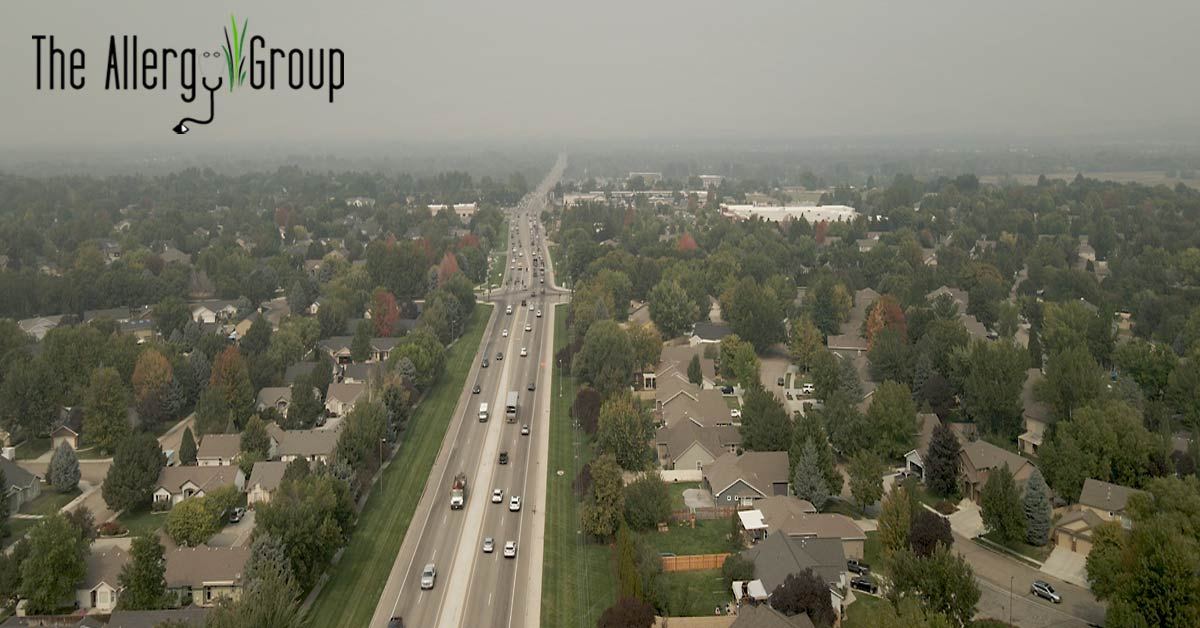
How Does Boise Air Quality Effect Pollen Allergy and Asthma?
Smoke in the air can be a significant health risk here in the Boise, ID. One of the downsides of living in the west is the smoke from forest fires impacting air quality. If you have allergies or asthma conditions, this could affect you even more in a negative way.
Asthma and Allergy Symptoms to Watch
Smoky Boise air alone can be a very problematic trigger for asthmatics. Even if you have mild intermittent asthma and no allergies, smoke could increase asthma symptoms such as chest tightness, shortness of breath and coughing. If you experience these symptoms during times where there is smoke in the air, it is advised you stay indoors and especially not perform any physical exertion outside during these times.
What is the Link Between Air Quality, Allergies, and Asthma?
Interestingly, many studies have been done to determine whether air quality can enhance allergy and asthma symptoms. These population studies have shown comparisons between urban and rural areas. There seems to be a positive correlation with the higher amount of pollutants in the air and the severity of allergy and asthma symptoms seen in the population with the same amount of pollen exposure in both groups. Why is this? This is a confounding question that allergists and research scientists are trying to understand.
Things we know about this are:
- That the higher the concentration of air pollutants and pollens, the more it stimulates the immune system.
- We see poorer asthma and allergy control in inner-city/urban areas than rurally when you would think this might be opposite since the rural communities are typically surrounded by pollens and animal danders.
- There are non-allergic triggers as well that can lead to chronic sinus congestion and asthma exacerbations which include smoke, dust, fragrances, exhaust etc..
Climate Change, Allergies, and Asthma
To push this further, scientists are looking at the effects of climate change on our health, especially regarding allergies and asthma. As the globe gets warmer, the abundance of pollen climbs higher and the pollen seasons get longer. With the increasing human population, and forest fires in the west, we will see more air quality issues. This combination leads to increasing allergy and asthma troubles for future generations.
How Do You Find Out the Current Air Quality for Boise, ID?
There are resources available for you to keep track of the Air Quality, by using a marker called the Air Quality Index. When levels of air particulates get above a certain level, there is more risk of negative health effects. Here at The Allergy Group, we keep a close eye on the Air Quality Index and the Boise Pollen Count and post it on our website for you. If it is in red zone or above, it is best if you have any asthma or allergy conditions to reduce time outdoors.
Want to learn more about Asthma? Read our Asthma Resource Guide
The allergy group has released a resource guide on asthma. This resource guide covers everything you need to know about asthma, and provides resources on topics like what you should do if someone has an asthma attack, what are the risk factors of asthma, and how do you know if you have asthma.
Make an Appointment at The Allergy Group
Looking for more information on how to manage your fall allergies? Visit our website to schedule an appointment with an allergist to learn if allergy shots are right for you. Our expertise in allergies makes us the perfect provider to help manage your seasonal allergies. We can test for your allergic triggers as well as provide information on prevention and prescribe treatments. This intervention can help improve your health and quality of life!

